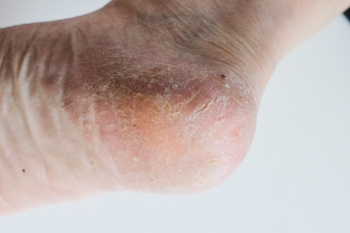Cracked Heels Can Affect Your Health

Cracked heels, though often dismissed as a cosmetic issue, can have far-reaching implications for your overall health. These fissures, resulting from dryness and thickening of the skin, not only cause discomfort but can also create an entry point for bacteria and fungi. Left untreated, cracked heels may lead to infections, including cellulitis, which can spread rapidly and become life-threatening if not addressed promptly. The pain and discomfort associated with cracked heels can affect your gait, leading to changes in posture and alignment that may contribute to musculoskeletal issues over time. Additionally, cracked heels can hinder your mobility and quality of life, making it difficult to engage in daily activities comfortably. If you have cracked heels, it is suggested that you visit a chiropodist who can successfully treat this condition, which may include prescribed medication.
Cracked heels, also known as heel fissures, can cause pain and discomfort. If your cracked heels are bothering you, please consult with one of the chiropodists from The Footcare Centre. Our chiropodists will assess your condition and provide you with quality foot and ankle treatment.
Dry, thickened skin around the rim of the heel is typically the first sign of cracked heels. While this condition is common and usually just a nuisance, some cases can be more severe. If left untreated and as more pressure is placed on the heel, the cracks become deeper and eventually walking and standing can be painful. These deep cracks or fissures can bleed and also become infected. Those with diabetes need to be especially careful as fissures could lead to diabetic foot ulcers.
Causes
Cracked heels can be the result of several different factors, including:
Dry skin
Taking long, hot showers or using harsh soaps
Standing for long periods of time
Walking barefoot
Walking in shoes with an open back, such as sandals or flip flops
Wearing shoes that do not fit properly
Living in a cold or dry climate
Certain skin conditions, such as eczema or psoriasis
Treatment
There are many at-home treatment remedies for cracked heels. Applying moisturizers to the heel can help hydrate the skin. Soaking your feet in warm water and exfoliating them with a loofah or pumice stone can help to buff away dead skin cells. If you are afflicted with cracked heels, it is recommended that you see a chiropodist for treatment.
Prevention
You can prevent cracked heels by:
Avoiding standing in one position for prolonged periods of time
Wearing well-fitted shoes with a closed back
Washing your feet with gentle soaps and lukewarm water
Moisturizing the feet daily
If you have any questions, please feel free to contact our office located in . We offer the newest diagnostic and treatment technologies for all your foot care needs.
